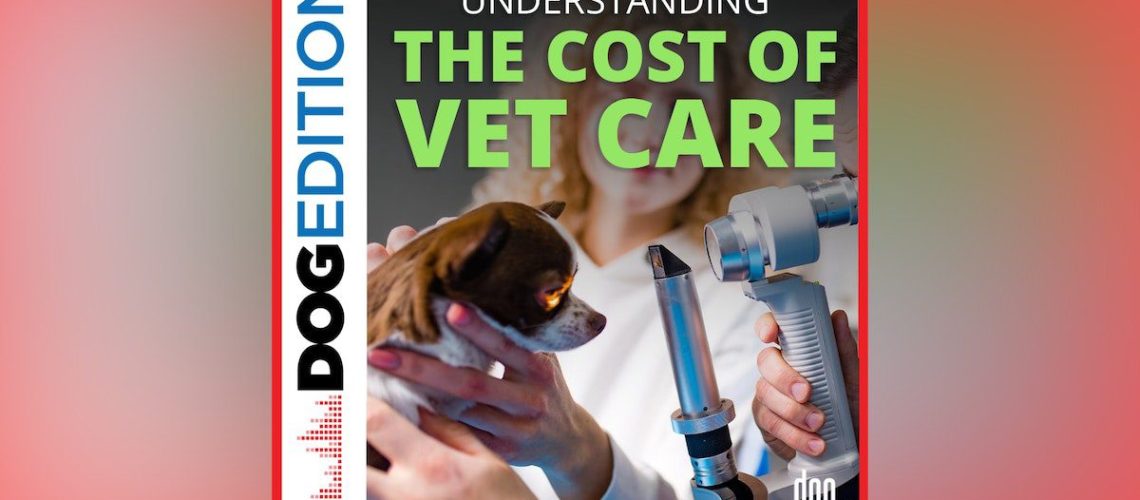In the world of pet ownership, it is crucial to understand the financial implications of veterinary care. From routine check-ups to unexpected emergencies, this article explores the various costs associated with keeping our furry friends healthy and happy.
Key Takeaways:
- Veterinary care costs can vary significantly depending on the type of treatment, location, and the specific veterinarian or clinic.
- Preventive care measures such as vaccinations and regular check-ups can help reduce overall veterinary costs by preventing more serious health issues.
- Pet insurance can provide financial assistance in covering unexpected veterinary expenses, but it's important to carefully review policies and understand coverage limitations.
- Seeking multiple opinions or quotes from different veterinarians can help ensure that you are getting the best value for your pet's care.
- Open communication with your veterinarian about your budget constraints can lead to alternative treatment options or payment plans that may help manage costs without compromising your pet's health.
What is Veterinary Care and Why is it Important for Pets?
Understanding Veterinary Care
Veterinary care refers to the medical treatment and healthcare provided to animals by trained veterinarians. Just like humans, pets also require regular check-ups, vaccinations, and treatments to stay healthy. Veterinarians are experts in animal health and can diagnose and treat various illnesses and injuries that pets may experience.
The Importance of Veterinary Care for Pets
Veterinary care is essential for pets because it helps ensure their overall well-being. Regular visits to the vet can help prevent diseases, detect any potential health issues early on, and provide necessary treatments. Vaccinations protect pets from common diseases such as rabies and distemper. Routine check-ups allow vets to monitor a pet's growth, dental health, weight, and address any concerns or questions that pet owners may have.
Pets cannot communicate when they are feeling unwell or in pain, so regular veterinary care is crucial for detecting hidden health problems. Early detection of diseases like cancer or kidney disease can significantly increase the chances of successful treatment or management. Veterinary care also includes preventive measures such as flea control and heartworm prevention to keep pets safe from parasites.
Overall, veterinary care plays a vital role in keeping pets healthy, extending their lifespan, and ensuring they lead happy lives alongside their human companions.
The Cost of a Typical Visit to the Vet
When it comes to the cost of a typical visit to the vet, there are several factors that can influence the final price. The type of pet you have, their age, and their overall health can all play a role in determining how much you will need to pay. Additionally, the specific services required during the visit, such as vaccinations or routine check-ups, can also impact the cost.
It's important to note that veterinary costs can vary significantly depending on your location and the individual clinic or hospital you choose. In general, however, you can expect to pay anywhere from $50 to $150 for a basic examination. This price may increase if additional tests or treatments are needed.
Factors Affecting Cost:
- Type of pet (dog, cat, bird, etc.)
- Pet's age and health condition
- Specific services required (vaccinations, check-ups)
- Location and choice of clinic/hospital
Additional Costs Associated with Veterinary Care
In addition to the cost of a typical vet visit, there are other expenses that pet owners should be aware of. These additional costs can include medications prescribed by the vet, diagnostic tests such as bloodwork or x-rays, and any necessary follow-up appointments.
If your pet requires specialized care or treatment for a specific condition or illness, these costs can quickly add up. It's important to discuss potential additional expenses with your vet beforehand so that you can budget accordingly.
Potential Additional Costs:
- Medications prescribed by the vet
- Diagnostic tests (bloodwork, x-rays)
- Follow-up appointments
- Specialized care or treatment for specific conditions
Understanding the Factors that Affect the Cost of Medical Treatments for Pets
Factors that Influence Veterinary Treatment Costs
The cost of medical treatments for pets can vary depending on several factors. One major factor is the type and severity of the condition or illness being treated. For example, a routine check-up or vaccination will generally be less expensive than treating a chronic disease or performing a complex surgery. Additionally, the size and breed of the pet can also impact costs, as larger animals may require more medication or anesthesia during procedures.
The Role of Diagnostic Tests in Determining Costs
Diagnostic tests play a crucial role in identifying and treating pet health issues, but they can also contribute to the overall cost of veterinary care. Blood tests, X-rays, ultrasounds, and other diagnostic procedures may be necessary to accurately diagnose a pet's condition. These tests often require specialized equipment and expertise, which can increase their cost. However, they are essential for providing proper treatment recommendations and ensuring the best possible outcome for the pet.
Tips for Managing Veterinary Treatment Costs:
- Research different veterinary clinics and compare their prices for common procedures.
- Consider purchasing pet insurance to help cover unexpected medical expenses.
- Discuss treatment options with your veterinarian to find more affordable alternatives without compromising quality.
- Take advantage of preventive care measures such as regular vaccinations and dental cleanings to avoid costly health issues in the future.
Resources for Understanding Veterinary Treatment Costs:
- Online resources like PetMD or The American Veterinary Medical Association (AVMA) provide information on average costs for various veterinary procedures.
- Local animal shelters or rescue organizations may offer low-cost veterinary services or financial assistance programs.
- Some veterinary clinics offer payment plans or financing options to help manage larger bills over time.
By understanding the factors influencing veterinary treatment costs and utilizing available resources, pet owners can make informed decisions and better manage their pet's healthcare expenses.
Financial Assistance and Insurance Options for Covering Veterinary Care Costs
Financial Assistance Programs
There are various financial assistance programs available to help pet owners cover the costs of veterinary care. These programs are often offered by nonprofit organizations, animal welfare groups, or veterinary clinics themselves. One example is the Pet Fund, which provides grants to individuals who cannot afford necessary veterinary care for their pets. Another option is CareCredit, a credit card specifically designed for healthcare expenses, including veterinary care. It offers flexible payment plans and low or no-interest financing options.
Pet Insurance
Pet insurance is another option to consider when it comes to covering veterinary care costs. Similar to human health insurance, pet insurance helps offset the cost of medical treatments and procedures for your furry friend. There are different types of pet insurance policies available, ranging from accident-only coverage to comprehensive plans that include preventive care. It's important to carefully review the terms and conditions of each policy before making a decision.
Tips:
- Research and compare different financial assistance programs and pet insurance policies to find the best fit for your needs.
- Start planning ahead by exploring these options before an emergency arises.
- Consider setting up a separate savings account specifically for veterinary expenses to help cover unexpected costs.
Tips to Reduce Expenses for Veterinary Care without Compromising Quality
Preventive Care
One effective way to reduce veterinary expenses is by investing in regular preventive care for your pet. This includes vaccinations, annual check-ups, dental cleanings, and parasite prevention measures such as flea and tick control. By staying proactive with your pet's health, you can catch potential issues early on and prevent them from becoming more serious (and costly) down the line.
Consider Generic Medications
When it comes to medications prescribed by your veterinarian, ask if there are generic alternatives available. Generic medications often have the same active ingredients as their brand-name counterparts but at a lower cost. This can help save money without compromising the quality of care your pet receives.
Tips:
- Look for veterinary clinics that offer wellness packages or discounted preventive care bundles.
- Ask your veterinarian about any available loyalty programs or discounts for long-term clients.
- Consider purchasing pet medications online from reputable sources, as they may offer lower prices compared to in-person pharmacies.
The Benefits of Regular Preventive Care in Reducing Long-Term Veterinary Costs
Early Detection and Treatment
Regular preventive care visits allow veterinarians to detect potential health issues early on. By identifying and addressing problems at an early stage, treatment options are often less invasive and costly. For example, detecting dental disease during routine cleanings can prevent the need for more extensive dental procedures later on.
Preventing Chronic Conditions
Preventive care measures such as vaccinations and parasite prevention can help prevent certain diseases and conditions altogether. By avoiding these illnesses, you can save on the costs associated with treating chronic conditions in the long run.
Tips:
- Schedule regular check-ups for your pet even if they appear healthy.
- Follow your veterinarian's recommended vaccination schedule to ensure optimal protection.
- Stay consistent with parasite prevention measures to avoid costly treatments for flea or tick infestations.
Factors that Influence the Cost of Surgeries or Emergency Procedures for Pets
Type and Complexity of Procedure
The type and complexity of a surgical or emergency procedure greatly influence its cost. More complex surgeries that require specialized equipment, longer operating times, or involve multiple specialists will generally be more expensive than simpler procedures.
Location and Facility Fees
The location of the veterinary clinic or hospital can also impact the cost. Facilities in urban areas or those with advanced medical equipment and technology may have higher overhead costs, resulting in higher procedure fees.
Tips:
- Request a detailed estimate from your veterinarian before proceeding with any surgical or emergency procedure.
- Inquire about any potential alternatives or less expensive treatment options that may be available.
- Consider seeking a second opinion if you are unsure about the necessity or cost of a recommended procedure.
Resources to Help Estimate and Plan for the Costs of Veterinary Care
Online Cost Estimators
Several websites offer online cost estimators for various veterinary procedures. These tools provide an approximate range of costs based on factors such as location, type of procedure, and pet size. While these estimates are not definitive, they can give you a general idea of what to expect.
Veterinary Payment Plans
Some veterinary clinics offer payment plans to help spread out the cost of care over time. These plans allow you to make regular monthly payments instead of paying the full amount upfront. It's important to inquire about any interest rates or additional fees associated with these payment plans.
Tips:
- Research local veterinary clinics and their pricing structures to find one that aligns with your budget.
- Utilize online resources and cost estimators to get an idea of potential expenses for specific procedures.
- Discuss payment options and potential discounts with your veterinarian before scheduling any major treatments or surgeries.
| In Conclusion | |
| 1. | Understanding the costs of veterinary care is essential for responsible pet ownership. |
| 2. | Regular preventive care can help reduce overall veterinary expenses in the long run. |
| 3. | Exploring different options such as pet insurance or financial assistance programs can provide additional support for managing veterinary costs. |
| 4. | Remember, investing in your
More Reads
Dr. Clara Bennett
Hello, fellow pet enthusiasts! I'm Dr. Clara Bennett, your go-to expert on all things pets. With a background in veterinary medicine and a passion for nutrition, I've spent years diving deep into the world of cats, dogs, birds, horses, and the products that keep them thriving. From the English countryside, I've witnessed the magic of animals and am here to share my knowledge, ensuring your pets receive the best care. Together, let's master the art of pet care!
All Posts »
Next Steps In Mastering Cat CareNext Steps In Mastering Dog CareJoin Our NewsletterSubscribe to receive our latest updates in your inbox! |















